
Caviar is having a moment right now. If it sounds crazy, that's because it kind of is. Caviar seemed a distant bite reserved for the elite, so why have heralded fish eggs have crept their way into the culinary mainstream?
As we reluctantly crawled out of our peaceful dwellings post-pandemic, we craved for those long, flashy, chaotic nights out. What happened to the bougie girl that blew hundreds on fancy cocktails in a single outing? We wanted her back in all her That's Hot glory.
So while indulging in caviar may seem a little extra, we think your inner party girl deserves it. And surprisingly, the fish eggs aren't as lavish as you may think. You can order anything from a casual snack like HŪSO’s caviar hot dog, to more delicately plated dishes a la The Menu. Caviar is truly that girl, and restaurants are taking note to serve this high-dollar ingredient in more affordable ways than ever. Don’t get it twisted – you may still dish out upwards of $50 for a caviar-covered meal or drink, but hey, it’s time to treat yo’ self.
What is caviar?
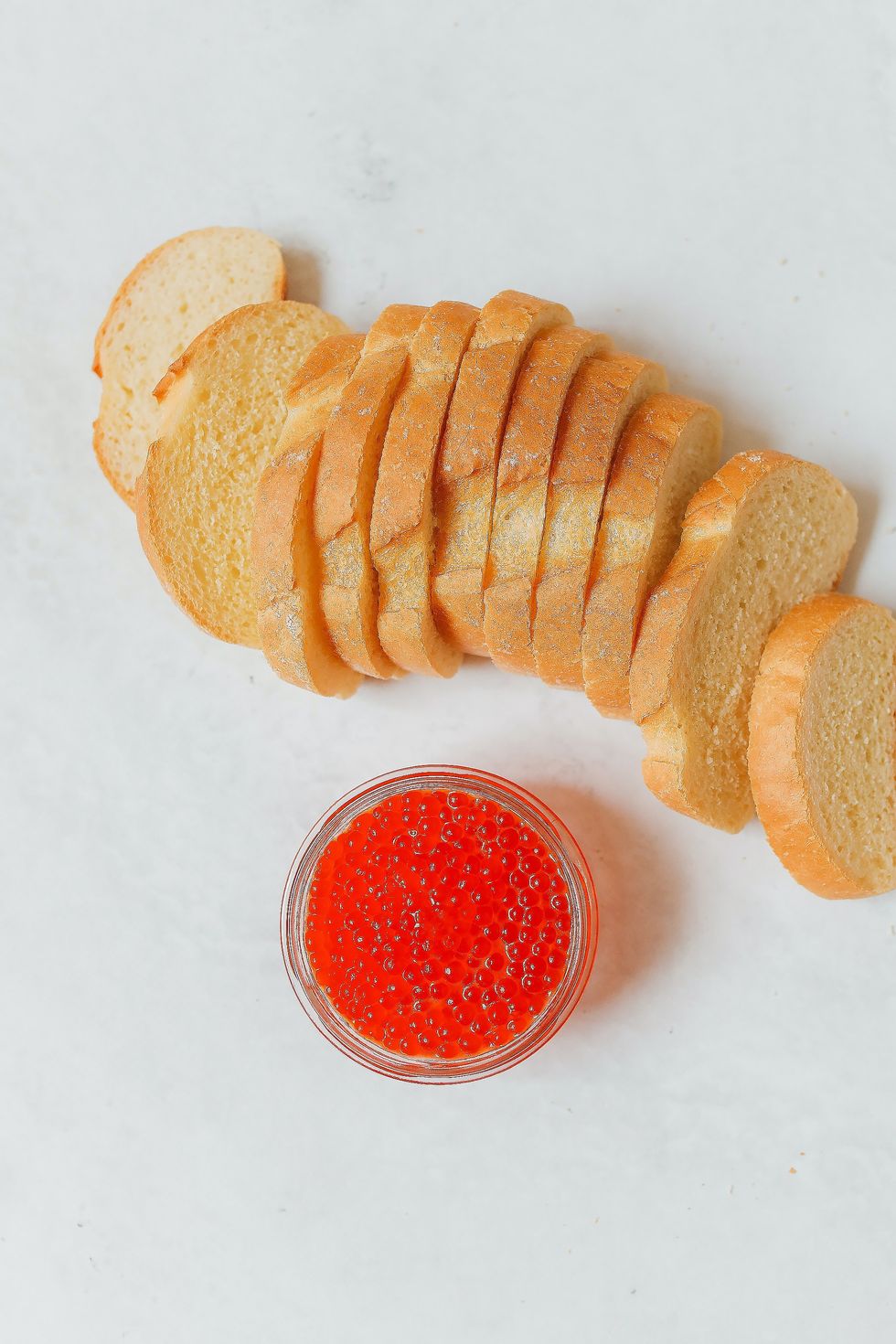
Caviar at its core is unfertilized, salt-cured eggs from female sturgeon fish. It was first popular in Russia, and soon became a renowned European delicacy. Caviar tastes overwhelmingly salty, fishy, and briny. The texture is appealing to connoisseurs and newbies alike – the roe satisfyingly pops in your mouth when eaten. Though more widely available in recent times, caviar is still considered a gourmet food. It's been long associated with wealth and opulence due to a hefty price tag.
Why is caviar so expensive?
Caviar typically costs significantly more than your average can of tuna due to the process it takes to farm it. Prices depend on companies' harvesting processes, fish rarity, production times, and shipping. Higher-end caviars are more aged and have richer flavors, while lower quality caviars are younger and carry a less fishy taste. Caviar is like wine, in the way you can get hyper-technical and uppity about where it's sourced, and its flavor notes and textures.
How do I eat caviar?
Caviar is traditionally served in small quantities, typically less than a tablespoon. According to connoisseurs, it's best enjoyed alone so you get the raw, unmasked flavor of the eggs. See also: caviar "bumps" – when a serving of roe is enjoyed off the back of the hand like salt after a tequila shot. The ritual is a new and novel way to consume the salty treat that's spread its way throughout the high-end culinary mainstream.
If doing a literal shot of caviar is not at all appealing, traditional pairings also include Russian blinis, plain crackers or breads, bagel and lox, and hard boiled eggs. It’s meant to be served chilled between 26-34 degrees Fahrenheit, if you want to get technical.
How much does caviar cost?
Caviar can cost from tens to thousands of dollars, depending on where it comes from, the amount you desire, and how it’s processed. The more extensive the farming process, the more you'll pay for caviar. Thanks to streamlined farming practices, the briny treat has become a lot more accessible than it had been in the past.
The rising popularity of caviar has also facilitated more sales. When patrons at casual restaurants like NYC's Tokyo Record Bar see that they can add on a serving of roe to their meal for $20, the financial barrier that once stood between them and the delicacy slowly crumbles. The opulence and ritualistic nature of eating caviar drowns consumer in an element of exclusivity, too. Caviar culture is birthed from a classic peer-pressure case: "Hey, if everyone's doing caviar, maybe I should too!"
Is caviar healthy?
Caviar is super healthy. It is full of Omega 3 fatty acids that protect you from heart disease, selenium that supports thyroid function, and B12 vitamins that boost energy. The benefits of caviar altogether support reproductive health and mental health.
Is caviar ethical?
Ethics are foggy in the world of caviar. The traditional, longtime practice to harvest caviar requires that the sturgeon fish be killed in order to get her eggs. This is still the case in many harvesting techniques, in order to preserve the quality of the product. Luckily , parts of the industry have moved away from the sea and are now focused on using domestically farmed fish for caviar. Farmed sturgeons are being used for the practice, instead of wild fish. Now, there are no-kill harvesting methods that utilize C-section or milking techniques. It's important to recognize the processes behind caviar, and to stay informed about harvesting practices.
The Non-Bougie Approach to Caviar
This seemingly high-strung delicacy has been casual-ified many times over. Chefs have brought caviar to finger foods like French fries, scrambled eggs, onion rings, and more. You no longer have to abide by the bougie guidelines to eating caviar – if it tastes good, and looks good, it's good. Implement the roe into your own recipes for a boost of elegance and just plain fun.
Set Up a Bagel Bar
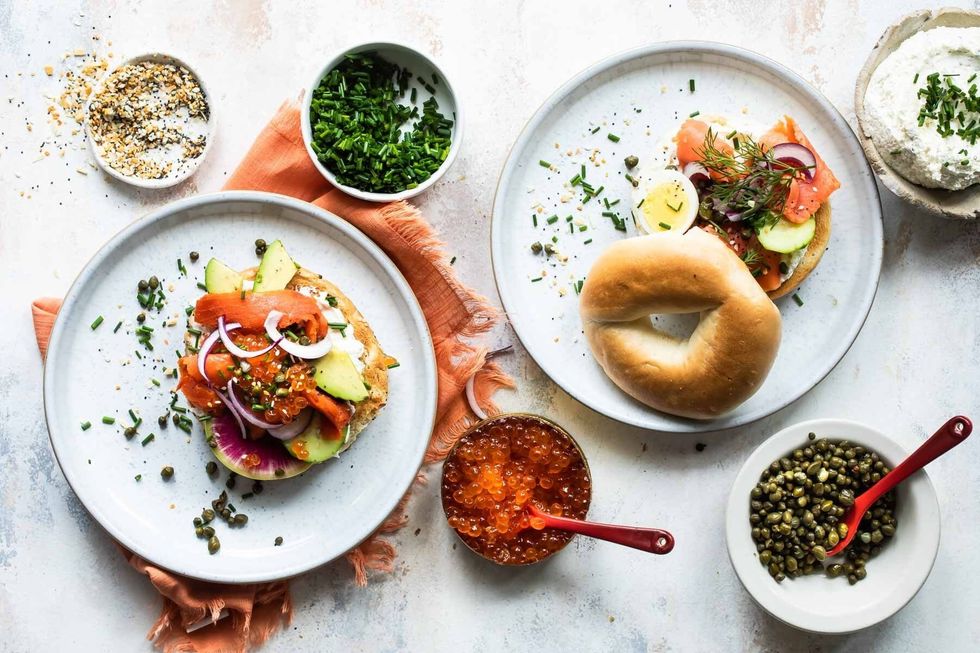
It's just the right thing to pair caviar's strong briny flavors with a lox-ridden bagel. Prep a morning-after bagel bar to cure even the gnarliest hangovers, and don't forget to pop in a tin of caviar for the fancy vibes. (via Culinary Hill)
Garnish Deviled Eggs with Caviar
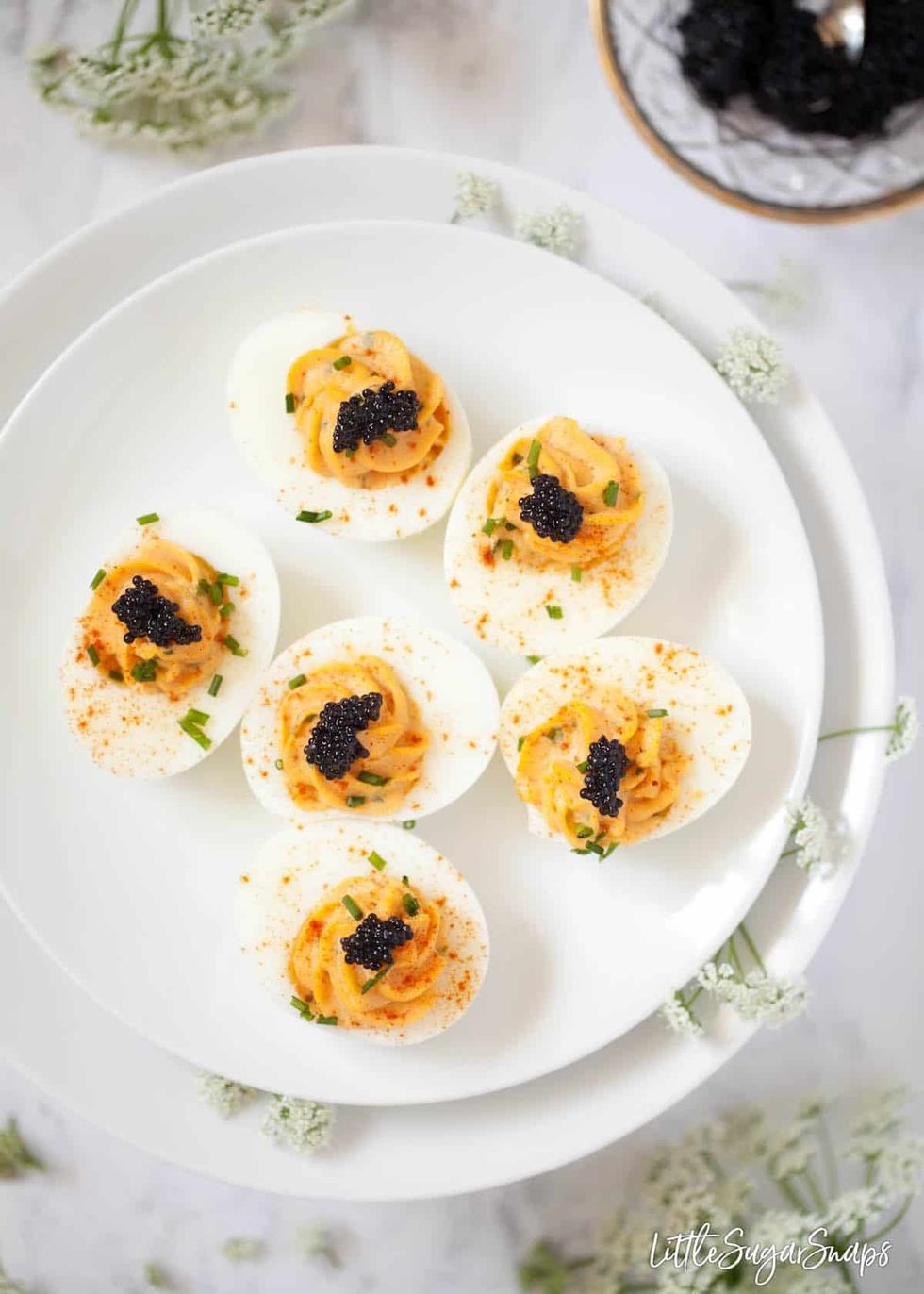
Eggs with caviar are a delish... and devilish bite. (via Little Sugar Snaps)
Make Caviar Cucumber Boats
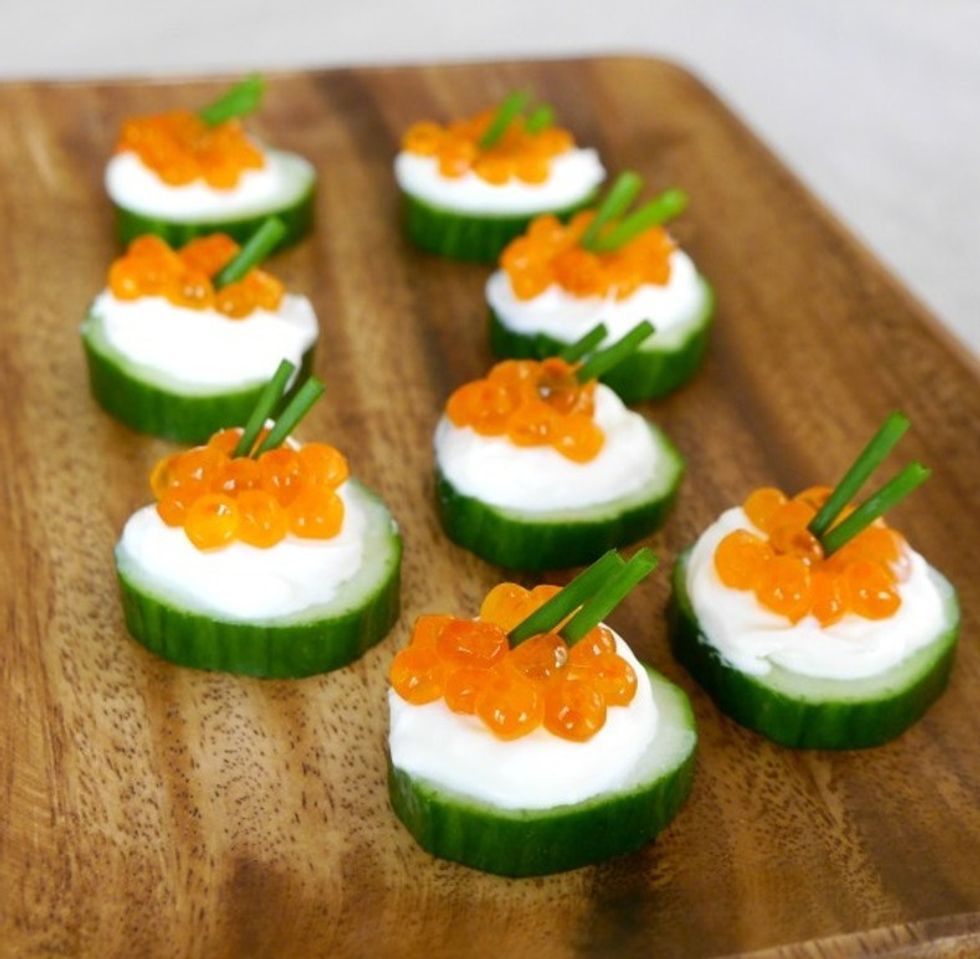
Craving some crunch? Throw some caviar atop some cucumber slices for an elevated party snack that's 100% going to satisfy. (via Caviar Star)
Prep Caviar Waffle Bites

Pop off with your presentation by prepping these caviar waffle bites. TBH, the waffles alone would taste bomb, but add a small dollop of roe, and BOOM, you've got yourself a truly over-the-top snack. (via Caviar Star)
Affordable Caviar Selects to Try at Home
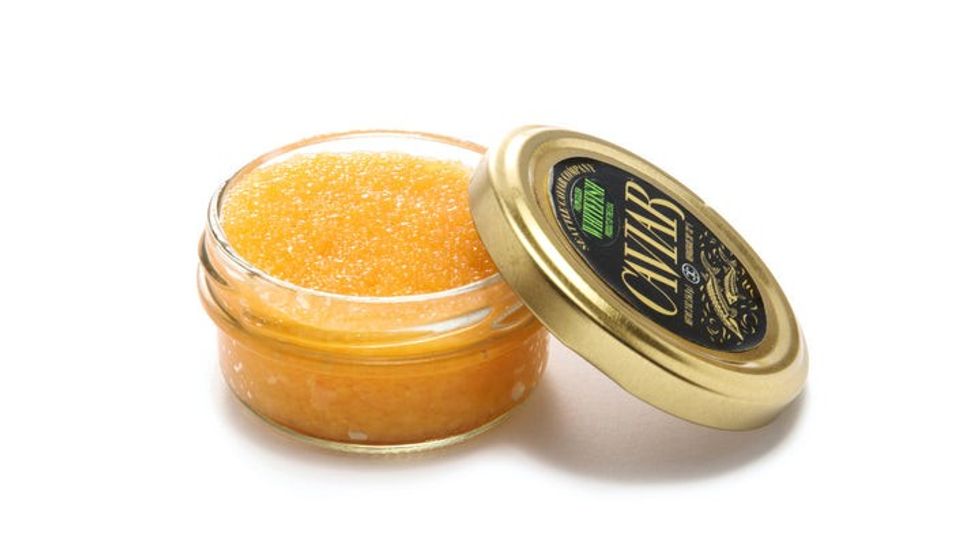
Seattle Caviar Co. Golden Whitefish Caviar ($15)
Dying to unleash your inner fancy foodie? Get a taste of caviar easily with Seattle Cavair Co.'s servings.
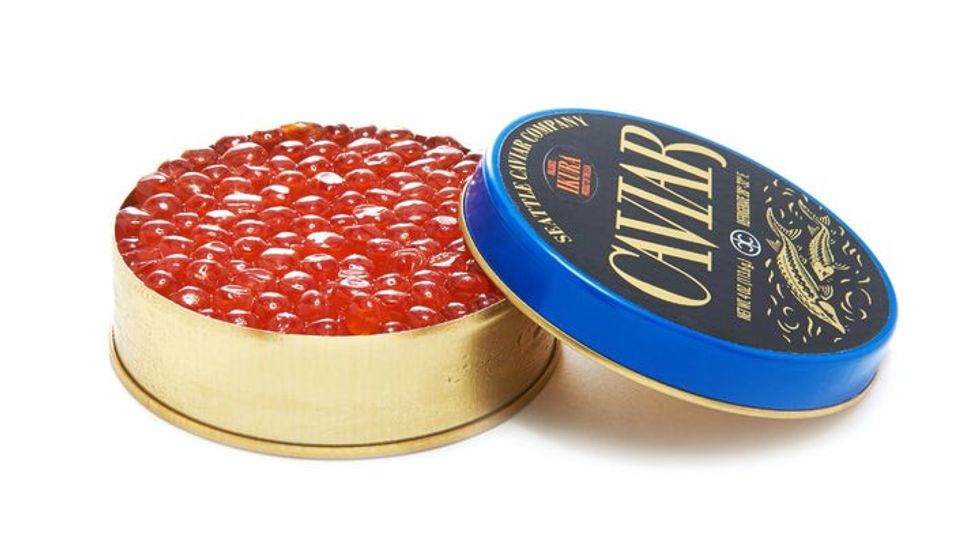
Seattle Caviar Co. Ikura Caviar ($15)
Spend fifteen bucks for a show-stopping Ikura caviar garnish to put on toasts and crackers.
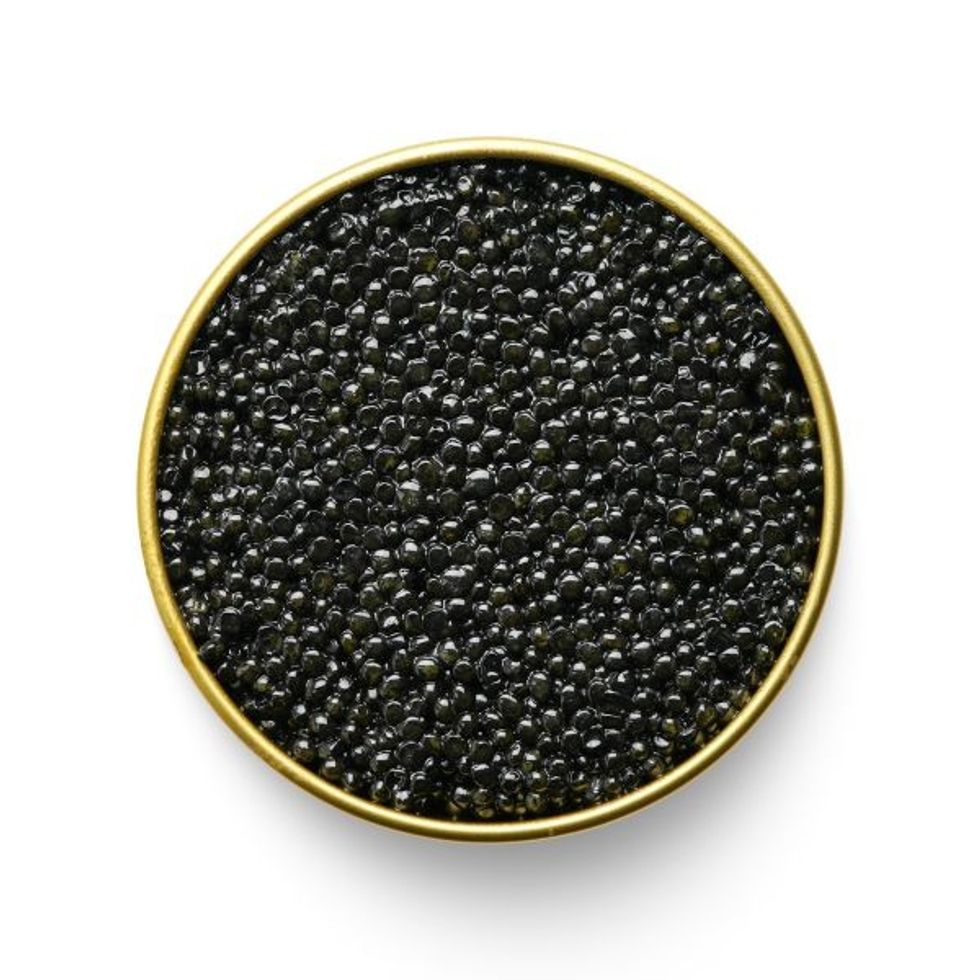
Marky's Siberian Sturgeon Caviar ($70)
This tinful presents the classic picture in your mind whenever caviar comes up. It's a tad pricier than those listed above, but this pick is responsibly harvested from a farm-raised Sturgeon.

Petrossian Royal Daurenki Caviar ($72)
If you're feeling like you need to go all out, this $72 single serving is the way to go.
Sign up for our newsletter for more trending food content!
Header image by Polina Tankilevitch / PEXELS
0 Commentaires